Cases - Decisions - Opinions - Accident Lawyer Hawaii

|

|

|

|
Court Cases & Opinions - Hawaii Injury Attorney
Attorneys Bill Lawson & Amy Woodward |
Personal Injury Cases re: Hawaii Accident LawDecisions and Opinions related to Hawaii Claims
The following decisions are cases of interest in the personal injury field. Some may show similarity to your situation, but each opinion is individual and must be evaluated on its own facts. Please feel free to peruse these cases. These cases are published by the State of Hawaii and other jurisdictions and it is believed that they may be copied or distributed without further permissions.
For additional decisions, please visit: Anderson v. AIG, Massachusetts court awards $7.3 million for insurer bad faith (2014) If insurers need another warning to adjust claims fairly, a Massachusetts court recently awarded $7.3 million dollars as sanctions against AIG for suppressing the results of their early investigation of an accident (witnesses statements), creating an alternative accident scenario based upon made-up facts and improperly manipulating the testimony of critical witnesses. For a chilling opinion describing what some insurers spend our money doing, see the case of Anderson v. AIG, Massachusetts Superior Court (Middlesex) Civil No. 2003-01212-B (April 8, 2014).
Wurtz v. Rawlings Co., Civil No. 13-1695, (2nd Cir. July 31, 2014). Court Review: Volume 42, Issue 3-4 - A Profile of Settlement by John Barkai, Elizabeth Kent, and Pamela Martin A 2006 study of the Hawaii legal system entitled "Court Review: Volume 42, Issue 3-4 - A Profile of Settlement" (American Judges Assoc. 2006), was done by Elizabeth Kent, Pamela Martin and John Barkai primarily based on Hawaii Circuit Court records. This study confirms that there is no court crisis resulting from personal injury claims.
Estate of McCall v. U.S., Fla. Sup Ct. No. SC11-1148 (March 13, 2014).
1.
Cohan v. Marriott SCPW-13-0000092 (February 27, 2014) - Majority opinion AFL Hotel Restaurant Workers v Bosque, Civ No. 03-1-0264 (April 28, 2006) This recent decision of the Hawaii Supreme Court has helped to clarify Hawaii law on medical lien claims against personal injury recoveries. The case clearly indicates that without a separate reimbursement agreement, an ERISA plan that paid medical benefits is unable to enforce any lien claims at least in the Hawaii courts. Conversely, however, to the extent that a reimbursement agreement exists, the case appears to hold that that separate document creates a state law cause of action and this action can be brought in Hawaii state court. This makes little sense, however, since the action still seeks to enforce plan reimbursement provisions which are unique to ERISA and overreaching under Hawaii state law. Nacino v. Koller (DHS), 101 Hawaii 466 (2003) [Hawaii Supreme Court] In this case the Intermediate Court of Appeals allowed the State of Hawaii - Department of Human Services (Deputy Attorney General Michael S. Vincent) to take all of a brain-injured person's third party liability recovey in return for medical assistance payments which had been made by the State on his behalf. HOWEVER, the Hawaii Supreme Court overruled this decision and indicated that, pursuant to HRS section 346-37, the amount of such a recovery which DHS can typically grab is limited to the special damages actually recovered (regardless of how the parties designated the recovery). Moreover, the Court suggested that this statute would control even in the face of an Assignment of Rights required by DHS before paying any benefits. (Note: unfortunately in this case the recovering party still lost the whole award to DHS, because of an ill-advised stipulation on the appeal.) Dorn v. Burlington N. Santa Fe R.R., March 30, 1999 The Ninth Circuit Court of Appeal recently reversed the decision of the Montana U.S. District Court excluding hedonic damages testimony from the defendant's damages expert in a wrongful death case. The admission of the testimony of the plaintiff's expert on hedonic damages as "reliable testimony" after a Daubert challenge to its admissability did not require a finding that the defense expert's testimony was "unreliable" - it should have been admitted and it was for the trier of fact to resolve the experts' differences. STENDER v. VINCENT, January 31, 2000 - The Hawaii Supreme Court holds that in an appropriate case- even if a party was not at fault- a trial court can give an adverse inference jury instruction (on the issue of liability) as a sanction for spoilation of evidence (such as the loss or destruction of the product [a motor vehicle] involved in the accident). Moreover, the court finds that in this case, the trial court was also required to exclude volumnious discovery responses submitted too late for the opposing party to have a reasonable opportunity to review and respond (thousands of documents submitted just after the discovery cutoff). YAMAGATA v. STATE FARM, MAY 26, 2005 - The Hawaii Supreme Court holds that a collision involving a motorcycle and a car is a "motor vehicle accident" by statutory definition because a car is involved (even though a motorcycle is also involved which is excluded from the definition of motor vehicle) and hence that first party Accidental Death Benefits are due and payable for a covered motorcyclist who dies in such a collision. (large file 1.2 meg) In DINES V. PACIFIC INSURANCE COMPANY, LTD. , 78 Haw. 325, 893 P.2d 176 (1995), the Hawaii Supreme Court ruled that a motorcyclist, who was involved in an accident with a phantom vehicle, was able to recover UM (uninsured motorists) coverage from an auto insurer on an automobile that he owned, even though his motorcycle insurance did not have UM coverage. The court found that UM coverage goes with the insured and not with the vehicle. WEMPLE v. DAHMAN, JANUARY 30, 2004 The Hawaii Supreme Court holds that the test for determining a defendant's liability for dangerous conditions upon property is the degree of control exercised by the defendant over the property and not merely the ownership position of the same- and that the issue of control or amount of control over the premises is ordinarily a question of fact that should be left to the jury. GARCIA v. KAISER FOUNDATION HOSPITALS, JUNE 9, 1999 The Hawaii Supreme Court holds (1) that an employee's claims against a health care plan provided by his employer (Kaiser) for failure/refusal to provide timely treatment for hip necrosis and a herniated disk are are preempted by the Employee Retirement Income Security Act (ERISA) and (2) that such claims against health care providers must go through the Medical Claims Conciliation Panel (MCCP) under HRS section 671-12 (1993) prior to the filing of the complaint or they are subject to dismissal. GONZALES v. DAI-TOKYO, MARCH 7, 2005 The Hawaii Supreme Court holds that HRS section 431:10C-301.5 (the Covered Loss Deductible or CLD) is constitutional and that it applies to claims made by an insured against their own carrier for optional additional Underinsured Motorists (UIM) coverage benefits. LEALAIMATAFAO v. WOODWARD-CLYDE CONSULTANTS, February 11, 1994 The Hawaii Supreme Court holds that a significant other of 19 years and a hanai child can have wrongful death rights as one "dependent" upon the decedent- even if not legally related nor even receiving financial support- a "relational" basis of dependency is sufficient. Moreover, for those who qualify- loss of companionship, love and affection is recoverable as well as pecuniary loss. DACANAY v. LIBERTY MUTUAL INSURANCE, FEBRUARY 9, 2005 Hawaii's Intermediate Court of Appeals holds that in a no-fault medical fee dispute before the insurance commissioner, a no-fault insurer can waive its insured's failure to join the medical care providers as the "real party-in-interest" and that when this occurs the commissioner may award attorneys fees and costs of the proceeding to the insured. OZAKI v. AOAO DISCOVERY BAY, JANUARY 22, 1998 The Hawaii Intermediate Court of Appeals holds (HRS) section 663-31 (1993), Hawai`i's modified comparative negligence statute, applies only to actions sounding wholly in negligence. Where negligence combines with other grounds of liability to cause injury, a plaintiff's negligence does not bar recovery but reduces the plaintiff's recovery by an amount equal to the degree to which the plaintiff is culpably negligent. OZAKI v. AOAO DISCOVERY BAY, JANUARY 22, 1998 The Hawaii Intermediate Court of Appeals holds that loss of enjoyment of life damages are recoverable in a wrongful death action in Hawaii. GEICO v. DIZOL, en banc, January 13, 1997 [sic- actually 1998] The 9th Circuit Court of Appeals- En Banc- reverses the original 9th Circuit decision below and holds that the U.S. District Court for the District of Hawaii had no requirement to sua sponte consider if exercising jurisdiction over a Declaratory Judgment action on a UIM policy (which action would address novel issues of state law) was appropriate. GEICO v. DIZOL, February 28, 1997 The 9th Circuit Court of Appeals (later reversed) holds that the U.S. District Court for the District of Hawaii erred in exercising jurisdiction over a Declaratory Judgment action on a UIM policy issued by GEICO (relating to an underlying fatal car accident and dram shop action) and in relieving GEICO of responsibility under the policy. The appeals court remands for consideration by the trial court of whether or not it should exercise its discretionary jurisdiction under the Declaratory Judgment Act or stay the Federal proceeding while the parties resolve the novel state law issues in state court.
HOOTERS v. AMERICAN GLOBAL INSURANCE, July 23, 2003 The United States District Court, S.D. Georgia finds that the liabilty and excess liability insurers for HOOTERS are required to indemnify Hooters for the breach of privacy and advertising injury inflicted when Hooters used co-defendant Value-Fax to send unsolicited fax advertisements to fax machines in Georgia. On March 21, 2001, a jury verdict had been returned against Hooters and the trial judge entered judgment against Hooters in the amount of $11,889,000
MONSTERHUT v. PAETEC , May 3, 2002 The NEW YORK Supreme Court, Appellate Division holds that an internet service provider could terminate service agreement in response to subscriber's sending of unsolicited, mass, commercial e-mail (spamming) in breach of the agreement
Schultz v. Wells, 13 P.3d 846 (Colo. App. 2000) abstract only The COLORADO Court of Appeals excludes proffered "bio-engineering" testimony about automobile collision experiments with human volunteers offered to "prove" that there is a threshold of force below which a person probably would not be injured.
KAHALE v. CITY AND COUNTY OF HONOLULU, May 12, 2004 Justice Acoba and Circuit Judge Chan's dissent to the majority opinion of the court below- which changed the existing period of limitations on claims against a County of the State of Hawaii
KAHALE v. CITY AND COUNTY OF HONOLULU, May 12, 2004 The Hawaii Supreme Court holds that the limitations period of 6 months (to file notice of claim?) found in HRS 46-72 applies to claims against the City and County of Honolulu and the other counties of Hawaii - overruling Salavea v. City and County of Honolulu 55 Haw. 216, 517 P.2d 51 (1973)- note also that the Supreme Court found that derivative claims of parents are generally not tolled by the infancy of a child- only the child's claims. WALKER v. CAMPANELLI, October 12, 2004 The DELAWARE Supreme Court upholds a lower court exclusion of photographs showing substantial car damage in a car accident case- which led to a zero dollar jury verdict- on the basis that no expert opinions had been given that the extent of car damage was relevant to show the injuries or the severity of the injuries. BYNUM v. MAGNO, November 18, 2004 The dissenting opinions of Justice Moon and Levinson objecting to the majority opinion (just below) which found that the full amount of medical bills can be claimed as damages in personal injury actions although Medicare/Medicaid pays only a substantially reduced amount. BYNUM v. MAGNO, November 18, 2004 The Hawaii Supreme Court finds that the full amount of medical bills can be claimed as damages in personal injury actions although Medicare/Medicaid has paid only a substantially reduced amount to discharge those bills. HASHIMOTO v. STATE OF HAWAI`I, January 21, 2005 The Hawaii Supreme Court's SUMMARY DISPOSITION ORDER- NOT FOR PUBLICATION - finding that the State of Hawai'i is not necessarily immune from suits under the discretionary function exception to the State Tort Liability Act for the failure to install a traffic control device such as a left-turn phase to the traffic lights at an interesection. Wilson v. AIG Hawaii Insurance Co., October 26, 1999 The Hawaii Supreme Court takes away the rights of a purchaser of a PIP auto policy to enforce the payment of medical benefits under the policy to doctors, hospitals and the like. Instead of holding that the doctors, hospitals etc. are intended third-party beneficiaries of a contract of insurance purchased by the car owner (hornbook contract law which gives both insured and medical care provider a cause of action), the Supreme Court in an extremely poorly reasoned decision removes the ability of an injured party needing medical treatment to compel his/her insurer to keep current on his doctors' bills. Ever since, insurers have been in a position to disrupt the injured party's medical treatment without recourse to the policy holder and they do so. This decision should be reversed legislatively or otherwise as soon as possible. It has allowed and will continue to allow insurers to deny and delay medical treatment for their insureds and it gives doctors administrative and red tape hassels in this state which they don't face in other jurisdictions. The insurance company control without recourse given by this decision hands insurers unreasonable power over doctors and their practices and forces doctors to become "insurance company doctors" doing the will of the biggest and most powerful companies in the world if they want their bills paid - or to move away to places where their bills can get paid without a lawsuit against an insurance company.
Gamata v. Allstate, April 28, 1999 The Intermediate Court of Appeals holds (1) that no-fault benefits are expenses which are appropriate, reasonable and necessarily incurred and are not restricted to treatment characterized as "curative" as opposed to "palliative. and (2) that under Hawaii's no-fault laws, if medical care has been provided and statutory dollar threshold has been met, then the provider is the real party in interest to compel non-payment of any medical bills for that service and the medical provider must bring (or join in) any action for reimbursement of the treatment costs
OMORI v. JOWA HAWAII CO., MARCH 30, 1999 The Hawaii Supreme Court holds that an unborn child has rights and may bring a tort action against his mother's employer for in utero injuries he/she personally sustained as a result of the employer's wrongful conduct
DORRANCE v. LEE, APRIL 27, 1999 An unappealed decision in the CAAP program determining damages for certain personal injury claims and apportioning liability therefor between the various parties to a motor vehicle accident has collateral estoppel effect as to the apportionment of liability for the other personal injury claims which may arise out of the same accident.
NIELSEN v. AMERICAN HONDA MOTOR, July 31, 1998 A duly qualified auto mechanic expert is able to act as his own expert witness to establish that an airbag malfunctioned and that it was defective in a products liability case.
MENDES v. HAWAII INSURANCE GUARANTY ASSOCIATION, FEBRUARY 11, 1998 The tort of first-party bad faith does not exist against HIGA (the Hawaiian Insurance Guaranty Association)
FOOTE v. ROYAL INSURANCE COMPANY, July 31, 1998 Intermediate Court of Appeals case- An auto policy issued to a small family-owned-and-operated corporation which provided coverage for "family members"? of the insured business was held not to be ambiguous enough to provide uninsured [or underinsured] motorist insurance for members of the business owner's family.
STATE FARM MUTUAL AUTO INSURANCE v. MURATA, OCTOBER 29, 1998 A policyholder may effectively lodge a timely claim for UM benefits by supplying an insurer with all the information requisite to making a claim for UM benefits (even if a specific UM claim form has not been filled out).
DAI-TOKYO ROYAL STATE INSURANCE v. YOKOTE, OCTOBER 31, 2003 An insurer may not limit its liability for optional wage loss benefits (under a car insurance policy) by "excess coverage only" policy provisions that render the consumer's choice of such coverage illusory.
ATAHAN v. MURAMOTO, JUNE 3, 1999 Pursuant to Hawaii's recreational use statute, as a matter of law, a beachfront property owner, who neither charges nor invites people to use his land, and who neither creates nor perpetuates the dangerous ocean conditions on an adjoining parcel, is not liable to a party who parks on his property and then walks to and is injured on the adjoining parcel.
GUMP v. WAL-MART STORES, July 27, 2000 The Hawaii Supreme Court affirms the Intermediate Court of Appeals' adoption of the "mode of operation" rule for premises liability cases.
LEONG v. SEARS ROEBUCK, DECEMBER 14, 1998 SUPREME COURT OF HAWAI`I holding that an escalator installed in a building may still constitute a product under Hawaii's product's liability law.
State of Hawaii v. Pacheco, April 11, 2002 Honolulu District Court (J. Leslie Hiyashi) decision holding that inference that registered owner was the driver under Hawaii's van-cam traffic surveillance law is unconstitutional.
BOWERS and STATE FARM v. ALAMO RENT-A-CAR - JUNE 17, 1998 - Hawaii Supreme Court (1) The escape clause contained in the Alamo rental agreement was void; (2) Alamo has the primary obligation to defend and indemnify Bowers against claims for personal injury and property damage incurred while driving an Alamo vehicle; and (3) State Farm's obligation was limited to providing excess liability coverage
If you have suffered serious injuries as the result of an accident in Hawaii, please feel free to contact Accident Lawyer Hawaii now for a free evaluation of your case. |
|
Accident Lawyer Hawaii
Law Offices of William H. Lawson
New client hotline:
Pearl City, Aiea and Waipahu:
Main business phone: Products Liability - Cases & Comment Jones Act- maritime law and seaman cases The Constitution Of The State Of Hawaii Recent Personal Injury and Car Accident News
|
|
Awards and Honors 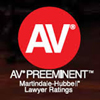 Martindale Hubbell - AV rated lawyer - Best Rating Possible
Martindale Hubbell - AV rated lawyer - Best Rating Possible
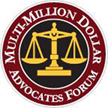 Multi-Million Dollar Advocates Forum
Multi-Million Dollar Advocates Forum
 AVVO Top Rated Personal Injury Attorney, 10 of 10
AVVO Top Rated Personal Injury Attorney, 10 of 10
 ATLA Top 100
ATLA Top 100
 Lawyers.com - Rated 5.0 out of 5.0 - Top Rating Possible
Lawyers.com - Rated 5.0 out of 5.0 - Top Rating Possible
 National Trial Lawyers - Top 100 Trial Lawyers
National Trial Lawyers - Top 100 Trial Lawyers
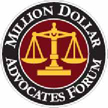 Million Dollar Advocates Forum
Million Dollar Advocates Forum
 American Society of Legal Advocates - Top 100 - 2017
American Society of Legal Advocates - Top 100 - 2017
 Marquis' Who's Who in the World, Who's Who in America and Who's Who in American Law
Marquis' Who's Who in the World, Who's Who in America and Who's Who in American Law
 AVVO Clients' Choice Personal Injury Lawyer
AVVO Clients' Choice Personal Injury Lawyer
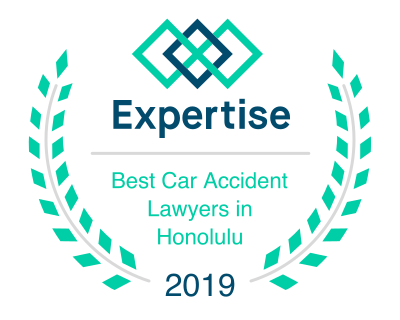 Expertise - Best Car Accident Lawyers in Honolulu 2019
Expertise - Best Car Accident Lawyers in Honolulu 2019
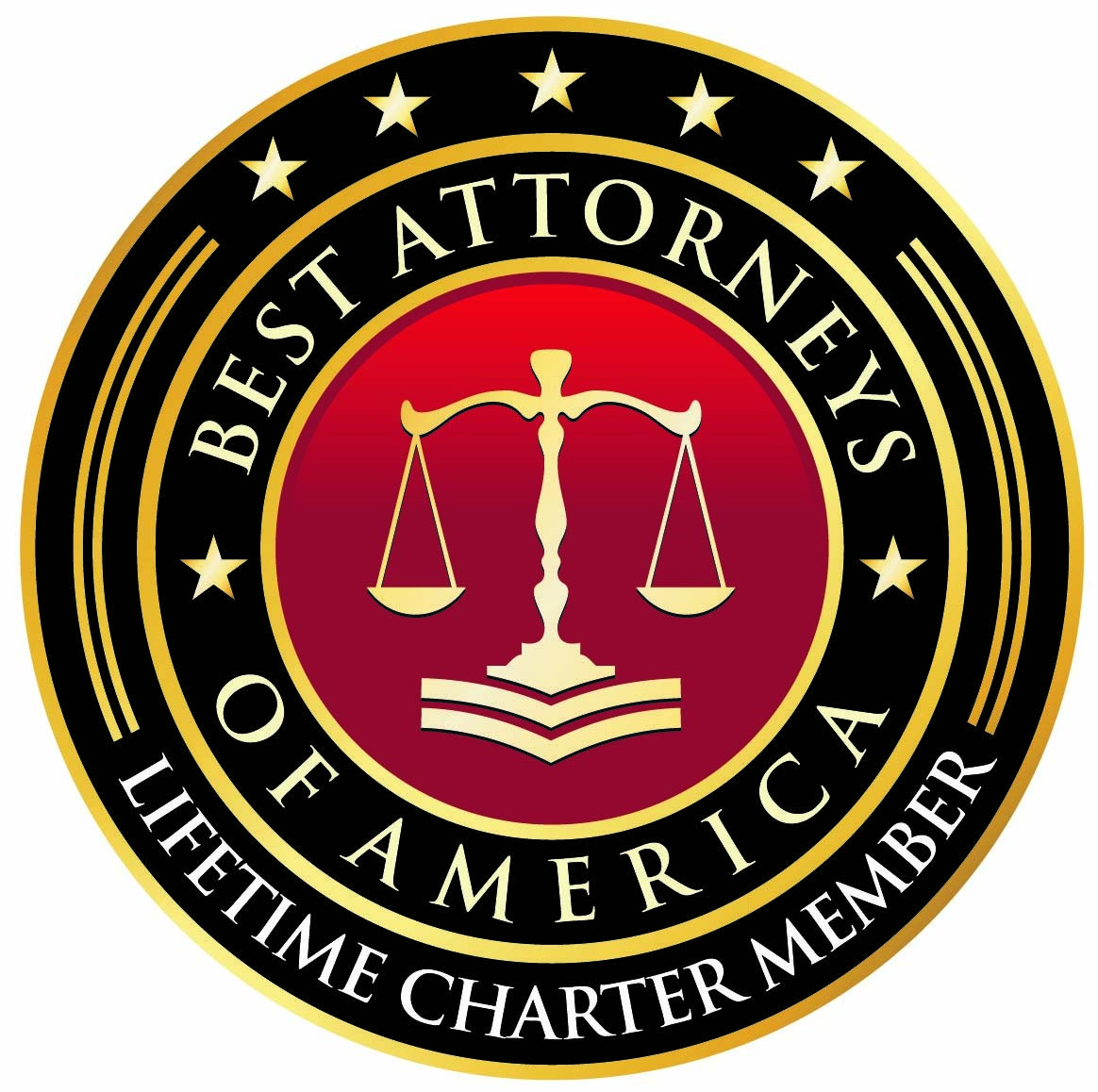 Best Attorneys in America - Life Charter Member
Best Attorneys in America - Life Charter Member
|
|
Click on a box below to choose one of our 4 menus:
There is NO CHARGE for sending your case information to our law firm. The information provided on this website is preliminary and informational ONLY. It is not legal advice. The use of our webpages does not establish an attorney-client relationship. This website is copyright 1999-2020 and the contents of this website are the property of Personal Injury Attorney William H Lawson. The Terms and Conditions of Use for this website and our Privacy Policy are available here for your consideration. All rights reserved. Personal Injury Cases, Decisions and OpinionsWe thank you for visiting our site! |






